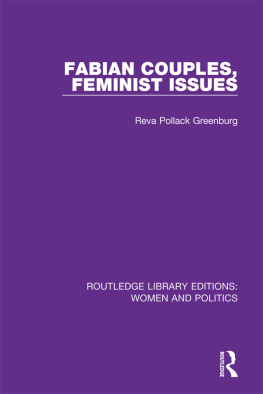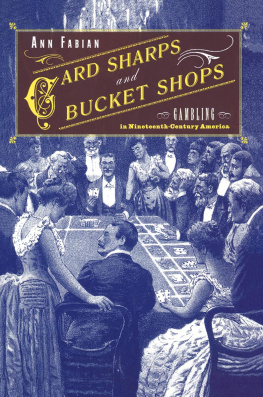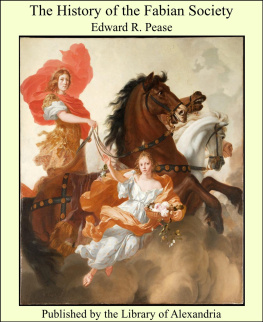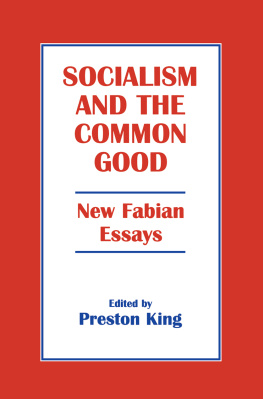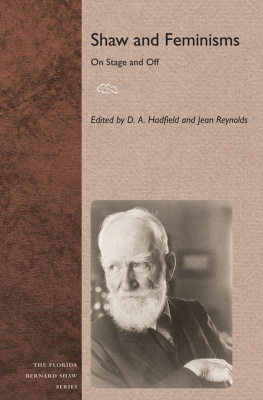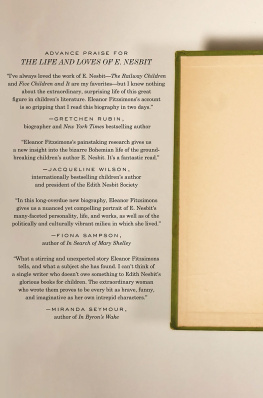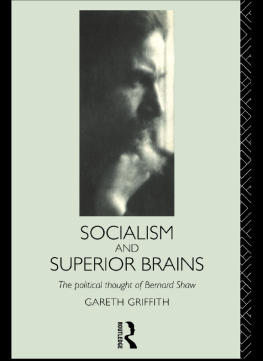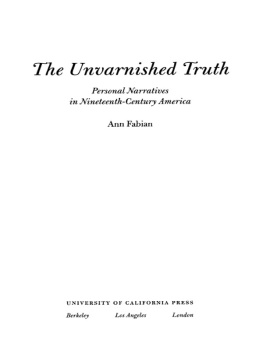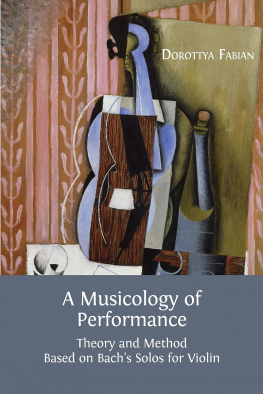ROUTLEDGE LIBRARY EDITIONS:
WOMEN AND POLITICS
Volume 3
FABIAN COUPLES,
FEMINIST ISSUES
FABIAN COUPLES,
FEMINIST ISSUES
REVA POLLACK GREENBURG
First published in 1987 by Garland Publishing Inc.
This edition first published in 2019
by Routledge
2 Park Square, Milton Park, Abingdon, Oxon OX14 4RN
and by Routledge
52 Vanderbilt Avenue, New York, NY 10017
Routledge is an imprint of the Taylor & Francis Group, an informa business
1987 Reva Pollack Greenburg
All rights reserved. No part of this book may be reprinted or reproduced or utilised in any form or by any electronic, mechanical, or other means, now known or hereafter invented, including photocopying and recording, or in any information storage or retrieval system, without permission in writing from the publishers.
Trademark notice: Product or corporate names may be trademarks or registered trademarks, and are used only for identification and explanation without intent to infringe.
British Library Cataloguing in Publication Data
A catalogue record for this book is available from the British Library
ISBN: 978-1-138-36393-9 (Set)
ISBN: 978-0-429-39879-7 (Set) (ebk)
ISBN: 978-1-138-39054-6 (Volume 3) (hbk)
ISBN: 978-0-429-42333-8 (Volume 3) (ebk)
Publishers Note
The publisher has gone to great lengths to ensure the quality of this reprint but points out that some imperfections in the original copies may be apparent.
Disclaimer
The publisher has made every effort to trace copyright holders and would welcome correspondence from those they have been unable to trace.
MODERN EUROPEAN HISTORY
Fabian Couples,
Feminist Issues
Reva Pollack Greenburg
Garland Publishing, Inc.
New York and London 1987
Copyright 1987 Reva Pollack Greenburg
All rights reserved
Library of Congress Cataloging-in-Publication Data
Greenburg, Reva Pollack, 1940
Fabian couples, feminist issues / Reva Pollack Greenburg.
p. cm.(Modern European history)
Originally presented as the authors thesis (Ph.D.)University of California, San Diego, 1983.
Bibliography: p.
ISBN 0-8240-7808-X (alk. paper)
1. Women and socialismGreat Britain. 2. Fabian Society (Great Britain) 3. FeminismGreat Britain.
I. Title. II. Series.
HX546.G74 1983
335.0088042dc19 8727719
All volumes in this series are printed on acid-free, 250-year-life paper.
Printed in the United States of America
UNIVERSITY OF CALIFORNIA
SAN DIEGO
Fabian Couples, Feminist Issues
A dissertation submitted in partial satisfaction of the requirements for the degree Doctor of Philosophy in History
by
Reva Pollack Greenburg
Committee in charge:
Professor Judith M. Hughes, Chair
Professor H. Stuart Hughes
Professor Kathryn Norberg
Professor Andrew Wright
Professor Donald Wesling
1983
DEDICATION
To my daughters, Beth, Joan, and Lara, who prompted me to investigate the woman question, and for whom, I hope, such questions will no longer be vexing.
TABLE OF CONTENTS
The writing of a dissertation is an enormous task, the enormity of which I had no notion before I began. This was, perhaps, fortunate. Never would I have attempted to scale such a mountain had I known how steep was the climb. En route many people have been helpful, many encouraging; to all of them I am grateful. With what little ink I have left in my pen (with the few bytes left in my Apple), with whatever brain matter has survived my effort, I would like to single out just two people without whom I would have long ago lost my way.
In the best of all possible worlds, all husbands are loving and warmly supportive of their wives endeavors; all are amenable to difficult schedules, inconvenient arrangements, on behalf of their wives distant goals. In this not so perfect world, my husband, Gerson, invariably has been just that, and I am lovingly grateful.
Whether all advisors are in the habit of exhibiting saint-like patience and offering painstakingly constructive criticism to their students, I do not know. My advisor, Professor Judith Hughes, managed to do so, even in the face of my occasional reluctance to cut purple prose or to make sense. Her encouragement has been crucial, her unfailing assistance keenly appreciated.
A final word on Beatrice and Sidney Webb, Charlotte and George Bernard Shaw, and E. Nesbit and Hubert Bland, whose skins I tried to inhabit, and whose company I very much enjoyed throughout this lengthy exercise. For all their inconsistencies, they are a fascinating lot; from them I have learned far more than I had hoped or expected.
Fabian Couples, Feminist Issues
by
Reva Pollack Greenburg
Doctor of Philosophy in History
University of California, San Diego, 1983
Professor Judith M. Hughes, Chair
In the three decades before the First World War, the relationship between socialism and feminism was both curious and convoluted. Despite strong theoretical links between these ideologies, class and sex seem to have inspired conflicting loyalties and opposing demands. In Britain, the uniquely middle-class, reform-minded Fabian Society might have been expected to bridge the gap between these movements. Yet, between 1884 and 1914, the Fabian Societys record on the woman question was highly inconsistent and, at times, overtly regressive.
In part, the Societys behavior reflected the fits and starts of the wider feminist movement and the disagreements among its own feminine members with regard to womens issues. More important, it reflected the contradictory notions and prejudices of the leading figures in the Society, most of whom happened to be men. Three of the most influential members--Sidney Webb, George Bernard Shaw, and Hubert Bland--were married to women who were themselves active in the Society. To understand fully the Fabian response to the woman question, one must understand the views of these prominent Fabians. These three couples, then, the Webbs, the Blands, and the Shaws, are the subject of this study.
On an issue as emotionally charged as is womens rights, however, stated opinions are not enough. To clarify both the ideological response of these six Fabians, and the experiences and attitudes which informed those responses, I have examined not only their works and words, but their marriages as well. My assumption has been that a partners real feelings about the rights and responsibilities of each sex, and his or her own sexual identification, are nowhere more apparent than in the conjugal relationship. Thus, in discussing the biographies of these three Fabian couples, I hope to shed additional light on their views with regard to the woman question and on the correspondence or contradiction between their views and their life experiences.
In the three decades before the First World War, a curious often convoluted relationship existed between the feminist and the socialist movements. Developing almost simultaneously, both movements were philosophically grounded in egalitarian principles. Their adherents shared an optimistic view of human nature and of the possibilities of improving upon it. In working for what each called the Cause, that is, collectivization for socialists, the vote for feminists, both groups formulated critiques of the same institutions, and each sought to enlarge the benefits derived from those institutions for their constituencies. Several socialist theoreticians pointed to the interrelation of the two movements, positing that only through socialism would women be truly emancipated.

